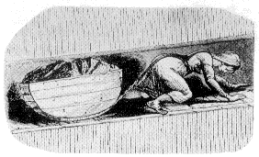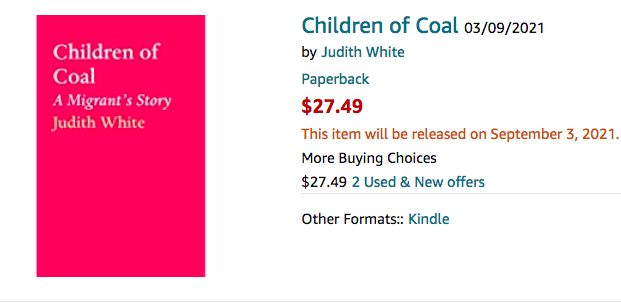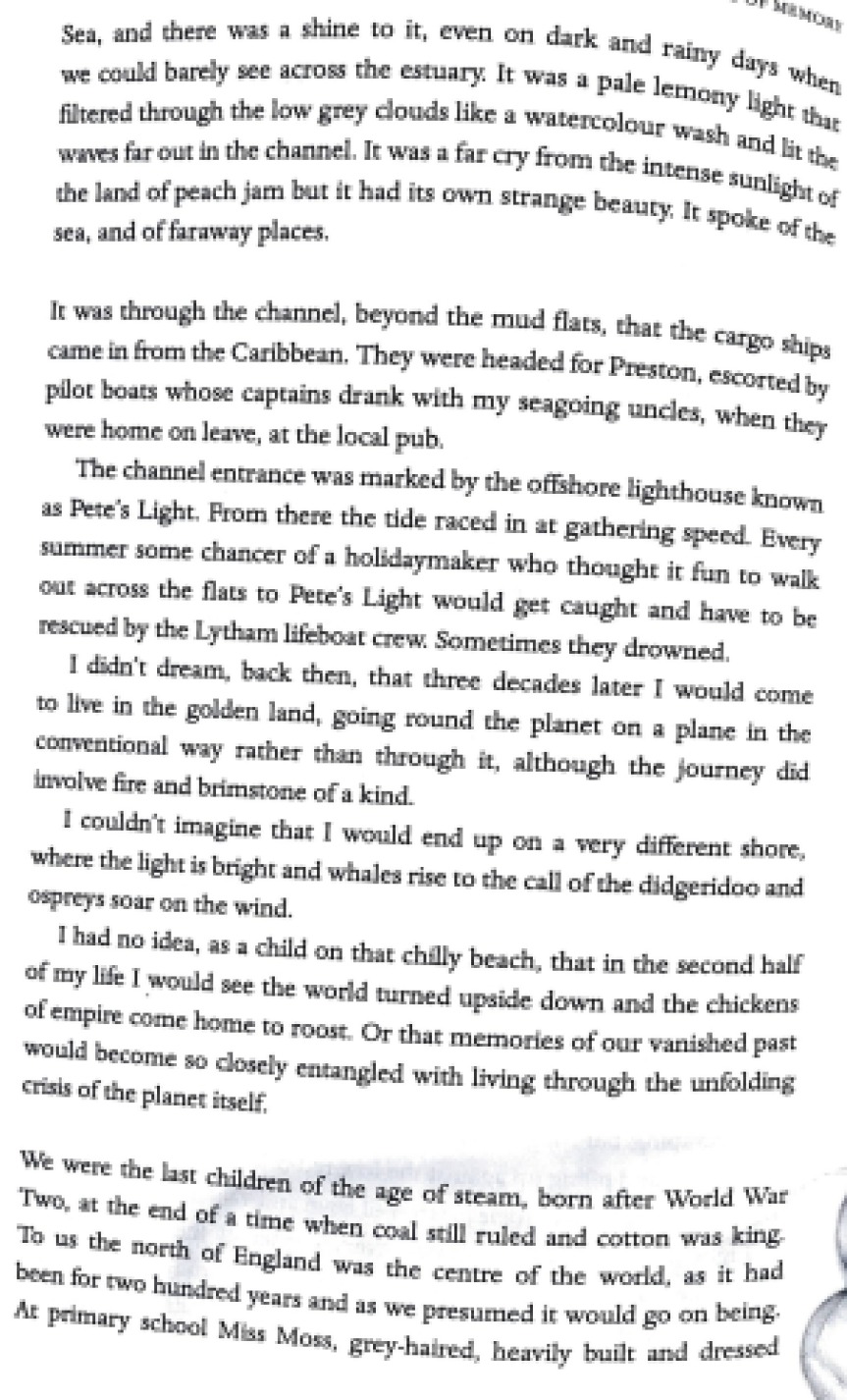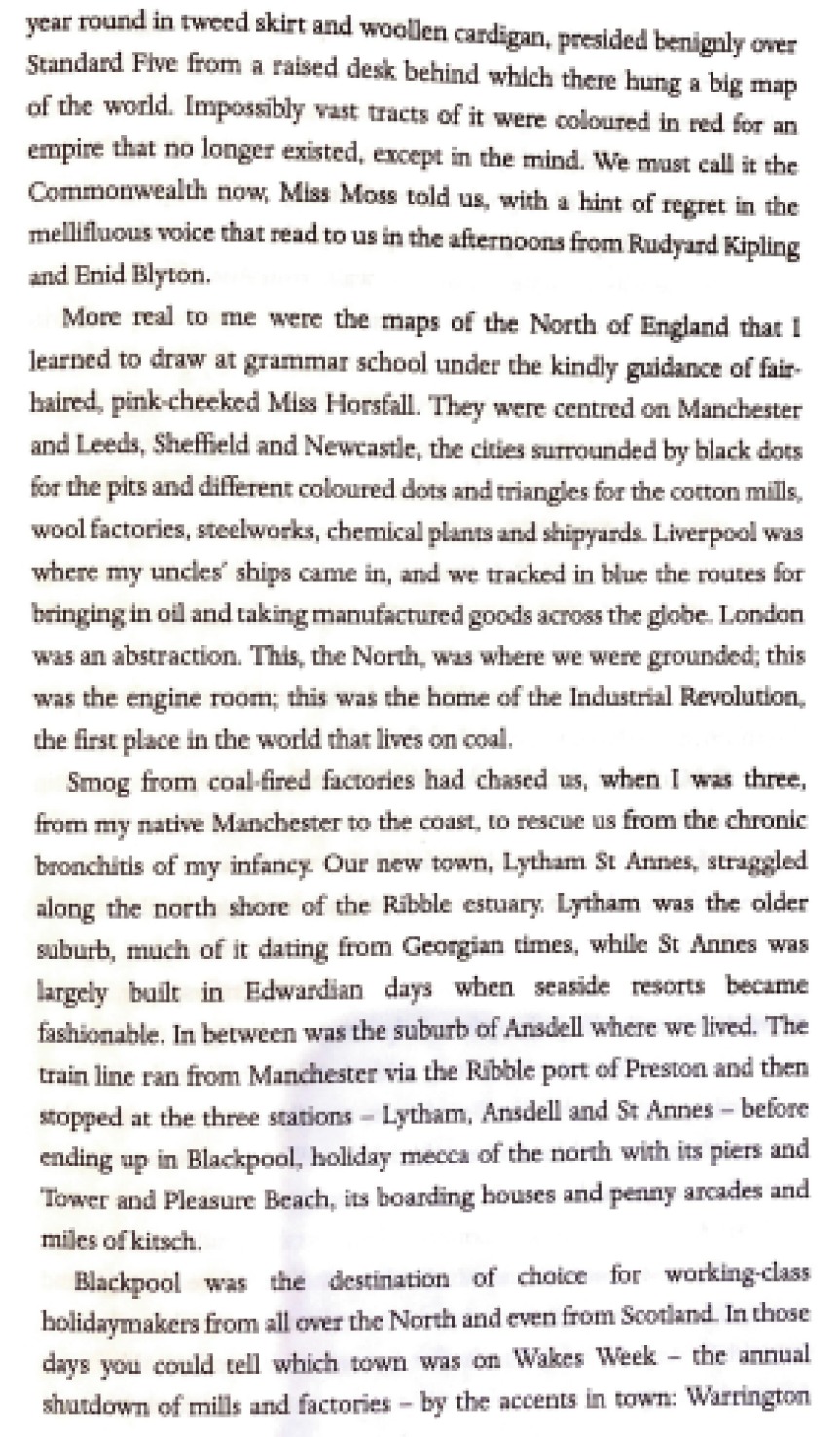
A stunning read!
Started at 6 o’clock and only put it down at 8 to put the potatoes on. Totally engaged in the extended families, their struggles and humour. Can’t wait to get back to it.
Humphrey McQueen
In a memoir spanning a century of family life, Judith White reflects on the pain inflicted on lives in Britain and Australia by an empire built on coal.
Born in the North of England, cradle of the Industrial Revolution, she rekindles childhood memories to tell the stories of the remarkable women and men who struggled through two world wars and the Depression.
Fleeing Britain in the Thatcher years she learned, from the First Nations people and the writers and artists of Australia, what a university education had never taught her about the devastating impact of colonisation.
Children of Coal adds a singular voice to the rising chorus calling for the public reckoning with history that is needed to free society from the shackles of the empire of the mind.

“Judith White writes with great affection, understanding and humour about her upbringing in the north of England and the heritage which did so much to shape her character and her direction in life. A book alive with people you would like to have known.” – Sandra Hall, film critic
The book is self published but it is available through Amazon.

Image: Coal pit at Acland. New Hope mine near Oakey on the Darling Downs Photo: Ian Curr
| Dear friends and readers, About to be published – my memoir of growing up in the North of England when it still ran on coal, and of the remarkable people I come from: Working-class grandmothers who struggled, with grim Northern humour, through two world wars and the Depression. A great-aunt who became housekeeper to royalty. A mother who clawed her way out of poverty to Oxford and a new life, only to have it snatched from her by war. An uncle who survived the Thai-Burma railway, another who came home an alcoholic, a hero of the French Resistance. An aunt who travelled the world on oil tankers. A father committed to science and civil rights. Children of Coal is also the story of a life in left-wing politics: of skirmishes with British intelligence, and the class warfare that came to a head when the Thatcher government set out to crush the coal miners’ union. After their defeat I came away to Australia, where coal still divides a nation. Here I learned from First Nations peoples, writers and artists, what a university education had never taught me about the devastating impact of colonialism. I came to see the pain inflicted on lives on both sides of the world by an empire built on coal, and to understand the need for the truth about our shared history. “Insightful and gutsy truth telling.” – Professor Stuart Rees, Sydney Peace Prize founder “A book alive with people you would like to have known.” – Sandra Hall, film critic Published 3 September by Tablo in paperback and e-book, 273 pages, $25/$8.99 rrp ISBN 9781649698391 ORDER NOW FROM YOUR LOCAL BOOKSHOP, OR ONLINE from AMAZON, KOBO, BOOKTOPIA, TARGET |
Judith White Tel: 0408 208 340 Email: judithwhite3@gmail.com Web: www.cultureheist.com.au Address: PO Box 773, Tweed Heads, NSW 2485 On Bundjalung country |




This article by John Quiggan (a Keynesian economist from the University of Queensland) first appeared in The Conversation. We post it here in an attempt to understand if BHP’s recent offloading of oil and gas assets will reduce carbon emissions. So far divestment from the Adani mine on Wangan and Jagalingou land in central Queensland has been unsuccessful. They have played a role in making the mine unpopular but not in stopping or all the others mines in the region.
But will divestment reduce carbon emissions?
Quiggan argues that: “divestment may just transfer the emissions elsewhere or at least prolong the phase out of fossil fuels as the companies scramble to get the last $$ of value from their assets.”
This is a conundrum faced by all Boycott, Divestment & Sanctions (BDS) campaigns – against apartheid in South Africa and Israel. Divestment and Boycott alone do not achieve the objective. For example, the West did not apply effective boycotts against South Afirca until they were sure that the incoming government would not become communist.
It goes back to the original question – can climate justice be achieved under capitalism. The problem with John Quiggan’s argument is that he offers Keynesian reforms to capitalism, no radical, systemic alternative.
Ian Curr
WBT editor
23 August 2021
BHP’s offloading of oil and gas assets shows the global market has turned on fossil fuels
The announcement by BHP, the world’s second-largest mining company, that it will shift its oil and gas assets into a joint venture with Australian outfit Woodside is a clear indication the “Big Australian” is getting out of the carbon-based fuel industry.
BHP has also been offloading thermal coal assets. It sold its share in the Cerrejon coal mine in Columbia to Glencore (the world’s biggest mining company) in June. It has written down the value of its Mt Arthur mine in Australia’s Hunter Valley while it looks for a buyer.
But if the oil wells, gas fields and coal mines are still there, what difference do these asset sales make? To answer this question, it is necessary to understand the broader logic of divestment, as championed by the divestment movement.
The divestment agenda
The immediate aim of the divestment movement is to end new investment in oil, gas and coal, with the ultimate aim of decarbonising the economy.
Over the past few years, with much prodding, financial institutions around the world have adopted divestment policies aiming to end or reduce their involvement in the carbon economy.
The initial focus has been on thermal coal, used in electricity generation. Coal mines and coal-fired power stations have been excluded almost entirely from global financial market. New developments now rely almost exclusively on finance from China, largely through the Belt and Road Initiative (and even this source is drying up).
The divestment movement has lobbied institutions such as banks and universities to rid themselves of investments and relationships that mean profiting from carbon emissions. Dan Himbrechts/AAP
In Australia, all the major banks and insurers, along with many superannuation funds, having now adopted policies to end their involvement with thermal coal. Now attention is turning to oil and gas.
Read more: BlackRock is the canary in the coalmine. Its decision to dump coal signals what’s next
Divestment policies, like those of Westpac and the Commonwealth Bank, now commonly exclude new oil and gas projects (though there are often escape clauses for companies with policies “aligned with the Paris climate goals”).
The recognition that oil and gas has a limited future is reflected in the massive drop in “upstream” capital expenditure on exploration and development. Capital expenditure in 2020 fell below half the peak level of 2014, and only a modest recovery is expected after the pandemic.
BHP’s choice
BHP and others therefore face a choice.
They can join the divestment movement, by selling carbon assets and focusing on other mining activities or on renewable energy.
Alternatively, they can become “pure play” coal, oil and gas businesses, profitable in the short run but increasingly excluded from investment portfolios and, ultimately, from normal financial transactions like banking and insurance.
This is the likely fate of the Woodside-BHP joint venture. The effect is similar to the “bad bank” structures created in the wake of the Global Financial Crisis to acquire non-performing loans and other dubious financial assets built up during the pre-2008 boom.
By offloading these assets, taking some losses in the process, the major global banks were able to recapitalise and resume their customary place at the centre of the financial universe.
Keeping institutions happy
The result will leave BHP shareholders with two separate holdings — one in BHP and one in the joint venture. The institutional shareholders who pushed for the divestment will now be able to dump these joint-venture shares and retain their holdings in BHP, which will (once the remaining coal assets are sold) now be safe from pressure for divestment.
Pressure didn’t come only from shareholders. Banks and other key institutional players were also key. Reports indicate the “all-stock” deal with Woodside was chosen precisely because it would have been impossible to arrange bank financing for the new venture.
Read more: How Bill McKibben’s radical idea of fossil-fuel divestment transformed the climate debate
Banks will now be free to continue dealing with BHP, one of their biggest customers, while leaving the oil and gas venture to lower-tier lenders willing to take the financial and reputational risk.
A justifiable exit strategy
It may be argued that, rather than disposing of its oil and gas assets, BHP should have taken action to shut them down.
This argument has been put forward both by environmentalists and Ivan Glasenberg, the chief executive of Glencore, the only major global miner to have chosen to stay in the coal business. Glasenberg has argued divestment is pointless because it simply makes fossil fuel assets “someone else’s issue”. Better to retain ownership of coal mines and phase them out gradually, he says.
Read more: Combating climate change – why investors should keep their shares in fossil fuel companies
Whether Glencore ever delivers on this strategy remains to be seen. But in light of the whole divestment agenda, BHP’s move is clearly more than a portfolio rearrangement.
For now, “pure play” oil, gas and coal companies can continue to generate profits. As global corporations, banks and insurers withdraw from the sector, however, the capacity of the remaining firms to resist regulatory and legal pressures to shut down will diminish.
Sooner or later, for example, it’s likely courts will find those responsible for carbon emissions liable for the damage caused by fires, sea level rise and other effects of climate change.
Without backing from banks and insurers, the costs of this litigation will fall directly on carbon-based corporations and their shareholders.
BHP, which was founded in 1885 and plans to be around for the long term, has seen the writing on the wall. It is getting out while it can.
John Quiggan
13 August 2021
Hi ,
The Wangan and Jagalingou – the Traditional Owners of the land where Adani’s coal mine is proposed – are calling on you to stand in solidarity with their call for Adani and the QLD government to respect their human rights.
Will you join the Online Rally demanding respect for Wangan and Jagalingou human rights on Monday 30 August at 6:30pm?
In shocking news, groundwater monitoring has uncovered a significant drop in aquifer levels near the mine that could have already caused irreversible damage to the sacred Doongmabulla Springs, which are only 10km away from Adani’s mine site. [1]
The Wangan and Jagalingou have called for an immediate stop work on the construction of Adani’s coal mine until an independent investigation is done on the groundwater impacts on the Springs. Meanwhile, Adani continues to extract huge volumes of water. [2]
Every day matters to protect the sacred Doongmabulla Springs – we need to take action now!
Join the Online Rally on Monday 30 August to stand in solidarity with the Wangan and Jagalingou and call on the QLD Government and Adani’s biggest investors to respect their human rights!
Online Rally: Respect Wangan and Jagalingou Human Rights!
When: 6:30pm AEST, Monday 30 August
Where: Online on Zoom
RSVP: Click here to RSVP and we’ll send you the Zoom link.
Doongmabulla means the place of many waters. It is an ancient spring system that has been running for thousands of years and is the final resting place of the Mundangarra – the rainbow serpent.
If Adani is allowed to destroy the Springs, Senior Wangan and Jagalingou Cultural Custodian Adrian Burragubba says, “It will be a catastrophe every bit as destructive to our culture, and as hurtful to our people, as the blasting of the caves at the Juukan Gorge.”
The QLD Government has the power to put a STOP to work on Adani’s coal mine until an independent investigation can happen. In 2019, Queensland passed the Human Rights Act. Now it’s time for the government to prove they believe in human rights by taking action to protect cultural heritage.
Adani’s biggest investors also have the power to publicly demand that Adani STOP work unless the Wangan and Jagalingou have provided their free, prior, and informed consent for Adani’s coal mine. Almost all of these investors have policies ruling out support for projects that do not have the free, prior, and informed consent of Indigenous peoples.
At the online rally, you’ll take action with thousands of others to put pressure on the QLD government and Adani’s biggest investors, calling on them both to follow the law and their own policies and respect human rights.
Will you stand in solidarity with Traditional Owners and join us to demand the QLD government and Adani’s investors respect Wangan and Jagalingou human rights? Join the Online Rally at 6:30pm, Monday August 30.
Wangan and Jagalingou people have said NO to Adani digging a coal mine on their sacred homelands since 2012. Yet the QLD government continues to violate their human rights by allowing Adani to occupy and destroy land, water, and culture with impunity.
Wangan and Jagalingou people have never stopped fighting. Now, they are calling on you to stand in solidarity and demand the protection of their human rights, before Adani does irreversible damage to their sacred cultural heritage – the Doongmabulla Springs.
Join us to stand in solidarity with Wangan and Jagalingou and demand action to protect the sacred Doongmabulla Springs before it’s too late.
In solidarity,
Your Galilee Blockade Team
[1] Drop in aquifer levels near Adani mine sparks concern for sacred wetlands, The Guardian, 8 July 2021
[2] Call to action – demand a Stop Work on Adani mine, The Wangan and Jagalingou Nagana Yarrbayn Cultural Custodians, 20 July 2021